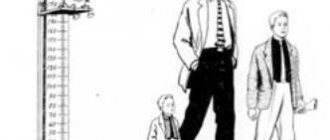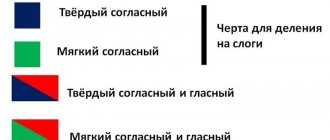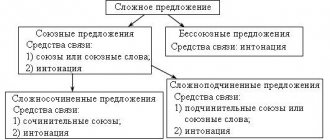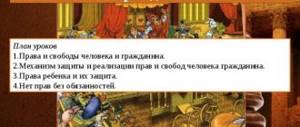CONTROL DICTANT - COMPLEX SENTENCES
Option I
We make our way through the bird cherry thicket to the shore. It's the end of June, and she's just dressed for spring. The wild rosemary burns with a belated lilac color, and the birch tree, not believing the summer, stands naked.
The taiga, seeing the vastness of Lake Baikal, rolls towards it along the hills in tiers of greenery and freezes at the very water. Having felt the water with their roots, the larches, birches and pines decided not to swim, stopped, but the taiga pressed in from behind and could not stop. That is why giant fallen trees lie on the shore, blocking the road to the lake.
It's amazing to see April and June here at once. Behind you are the smells of summer, and on Lake Baikal it’s just like the Volga in flood. The same vast expanse of water, the same ice floes in herds.
Baikal opens late, and until the end of May icy herds rush through the water. In June they land on the shore and here, near a boulder, they slowly settle, frightening the animals at the watering hole with an unexpected rustle.
The water of Lake Baikal, clear as a tear, does not tolerate garbage, and in stormy weather it throws fragments of boats and driftwood onto the shore. Not a speck in the water!
The distant blue hills merge with the sunset stripes, and they are slowly obscured by the evening haze. (165 words.)
(According to V. Peskov.)
Option II
“The Tale of Igor’s Campaign” fit into just a few pages of an ancient manuscript, but for two centuries the people of Rus', tormented by princely strife and attacks by nomads, remembered it and quoted wise patriotic lines by heart.
By the time of Igor’s campaign, who secretly led his squads to the Don and imprudently lost his army and the honor of a commander, Rus' had broken up into several independent principalities. The feuds of the princes turned into bloody wars, and the nomadic tribes of the Polovtsians, constantly raiding Russian lands, cut off the ancient route “from the Varangians to the Greeks”1 and disrupted the economic ties of Rus' with the southern and eastern lands. Their raids were accompanied by the destruction of cities and the capture of residents, but the princes, who had lost their sense of patriotism, were unable, due to continuous rivalry, to deliver a decisive blow to the Polovtsians.
Chroniclers, as a rule, only recorded events, and only a few of them decided to evaluate individual actions of the princes. But none of the ancient Russian scribes rose, like the author of the Lay..., to the heights of wise historical generalizations. The poem, however, was gradually forgotten, and only at the end of the 18th century, after the discovery of the only surviving copy, did it resound with renewed vigor. (166 words.)
(According to B. Rybakov.)
Homework: ex. 68.
1 Tell students about using quotation marks.
Main images of “The Tale of Igor’s Campaign” (presentation)
BASIC IMAGES OF “THE WORDS ABOUT
IGOR’S CAMPAIGN”.
- “The Tale of Igor’s Campaign” is supposedly of southern Russian origin, perhaps even Kiev. Such assumptions follow from the conclusion of the Lay, from the author’s enthusiastic attitude towards the Grand Duke of Kyiv Svyatoslav, from love for Kyiv and its mountains.
In 1185, without warning anyone, Prince Novgorod-Seversky Igor Svyatoslavovich went to the Polovtsian steppe, along with his son, brother and nephew. They set out on the campaign on April 23.
On May 1, a solar eclipse caught them on their way. But, despite the terrible sign, Igor did not turn his army back.
Contemporaries assessed the events of 1185 differently; we learn about this from two ancient chronicles - the Laurentian and Ipatiev chronicles. The Laurentian Chronicle sharply condemns Igor, portraying him as a arrogant and ambitious prince, a short-sighted commander.
In the “Chronicle Tale”, which is read in the Ipatiev Chronicle, there is no direct condemnation of the prince; he even evokes sympathy not only with his worthy behavior during the battle, but also with sincere repentance for having caused a lot of suffering to the Russian land.
AUTHORITY OF “THE WORDS ABOUT IGOR’S CAMPAIGN...”
Throughout the two centuries since the publication of the Lay, hypotheses of varying degrees of evidence have been put forward about who (a specific person or group of people) could be its author. Some researchers believed that the tone of the author’s appeals to the princes indicate that he himself was a prince or a member of a princely family (in particular, the names of Igor himself, Yaroslavna, Vladimir Igorevich and a number of other princes, including extremely little-known ones, were mentioned); others, on the contrary, argued that the prince could not call the prince “master.”
“Igor Svyatoslavovich is the son of his era. This is the “average” prince of his time: brave, courageous, to a certain extent loving his homeland, but reckless and short-sighted, caring more about his honor than about the honor of his homeland.”
D.S. Likhachev
The author admires how selflessly, forgetting about everything - about his wounds, about his father’s golden table, about his beautiful wife, Vsevolod fights. His strength is exaggerated, he looks like a hero from a Russian epic: wherever Vsevolod gallops, “shine with his golden helmet, there lie the filthy heads of the Polovtsians.”
- Svyatoslav is a statesman trying to unite military forces, preserve and increase the power of the Russian state.
Yaroslavna
is a woman, the wife of a warrior who has gone on a campaign and does not give news of himself. Her suffering, her melancholy are understandable to people of any era .
- The brave squad fights the Polovtsians to the last man. Only then did the battle stop when “there was not enough blood wine.” The author reproaches Igor for “ruining wealth” and leaving “Russian gold” (that is, the squad) at the bottom of Kayala, the Polovtsian river
- The author turns nature into a living, thinking creature that suffers or rejoices along with the heroes, condemns or approves of their actions. Pictures of nature are imbued with the author’s love for his homeland.
- The idea of the need to unite the appanage principalities around Kyiv in the face of the threat of an invasion of the steppes into the “Russian land.” Not only Svyatoslav’s “Golden Word” is subordinated to this idea, but also the author’s historical digressions, from which it is clearly visible: they were united - they won victories; entered into strife - they brought only grief and suffering to the Russian land.
- There are several hundred translations of “The Tale of Igor’s Campaign” into various languages (many are presented on the website “Parallel corpus of translations of “The Tale of Igor’s Campaign””).
- Russian culture has developed a special tradition of translating the Lay. Among the translators of “The Lay” into modern Russian are a number of major Russian poets - V. A. Zhukovsky, A. N. Maikov, K. D. Balmont, N. A. Zabolotsky, E. A. Evtushenko. V.V. Nabokov translated “The Lay” into English.
- Major figures of national literature are also among the translators of “The Lay” into other languages: into Ukrainian - Ivan Franko, into Belarusian - Yanka Kupala, into Polish - Julian Tuvim, into French - Philippe Soupault, into Mongolian - Tsendiin Damdinsuren, into German - Rainer Maria Rilke, in Hebrew - Arie Stav and others.
- Well-known translations of the “Lay” into Russian belong to such major philologists and researchers of the monument as R. O. Yakobson, D. S. Likhachev, O. V. Tvorogov.
THE WORD IN RUSSIAN PAINTING
- The images of the poem found visible embodiment in paintings and illustrations by Russian artists: V. Vasnetsov, V. Serov, N. Roerich, V. Favorsky.
N. Roerich The Campaign of Prince Igor"
V.M. Vasnetsov “After the massacre
Prince Igor with the Polovtsians"
The opera “Prince Igor” is an example of a national heroic epic in music.






